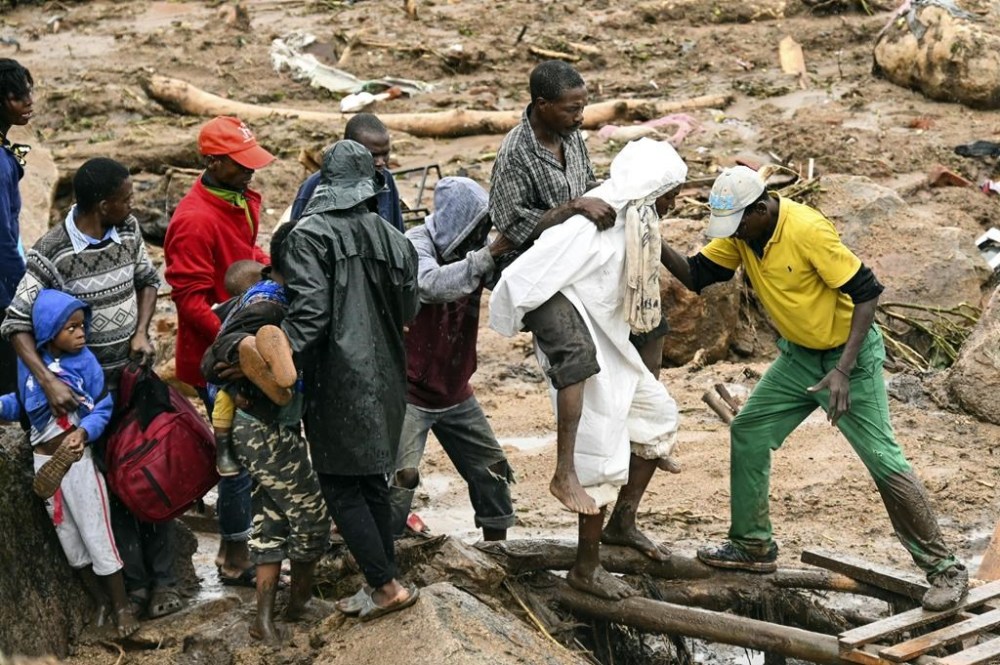As climate woes worsen, Africa’s economies suffer, UN says
Advertisement
Read this article for free:
or
Already have an account? Log in here »
To continue reading, please subscribe:
Monthly Digital Subscription
$1 per week for 24 weeks*
- Enjoy unlimited reading on winnipegfreepress.com
- Read the E-Edition, our digital replica newspaper
- Access News Break, our award-winning app
- Play interactive puzzles
*Billed as $4.00 plus GST every four weeks. After 24 weeks, price increases to the regular rate of $19.00 plus GST every four weeks. Offer available to new and qualified returning subscribers only. Cancel any time.
Monthly Digital Subscription
$4.75/week*
- Enjoy unlimited reading on winnipegfreepress.com
- Read the E-Edition, our digital replica newspaper
- Access News Break, our award-winning app
- Play interactive puzzles
*Billed as $19 plus GST every four weeks. Cancel any time.
To continue reading, please subscribe:
Add Winnipeg Free Press access to your Brandon Sun subscription for only
$1 for the first 4 weeks*
*$1 will be added to your next bill. After your 4 weeks access is complete your rate will increase by $0.00 a X percent off the regular rate.
Read unlimited articles for free today:
or
Already have an account? Log in here »
Hey there, time traveller!
This article was published 15/03/2023 (922 days ago), so information in it may no longer be current.
From devastating cyclones and floods to an unrelenting drought, African countries are spending between 2% and 9% of their budgets to respond to extreme weather events, according to a report released by the United Nations on Wednesday.
A committee of experts shared the findings at the annual U.N. conference of African ministers of finance and economic planning in Addis Ababa, Ethiopia.
“Climate change is having a devastating impact on Africa’s economies, and the situation is expected to worsen in the coming years,” Antonio Pedro, the acting executive secretary of the U.N. Economic Commission for Africa told The Associated Press.

Climate change, alongside the war in Ukraine and a global economic slowdown have been identified as key factors that have led to Africa’s economic decline from a growth of 4.6% in 2021 to just 3.6% in 2022, the U.N. report said.
The meeting comes as weather extremes are crippling parts of the continent: A punishing cyclone in Malawi and Mozambique has so far claimed more than 225 lives, displaced over 100,000 people and destroyed infrastructure and property. In the east and Horn of Africa, a debilitating drought has put the region on the throes of a famine.
Africa contributes less than 4% of global greenhouse gas emissions despite being home to 17% of the world’s population. Many nations have limited capabilities to deal with the impacts of climate change. Some estimates say the continent will need investments of over $3 trillion by 2030 to adequately adapt to climate change and curb emissions.
“Climate change has tremendous impacts in African economies and climate action is impossible without climate finance,” said Nemera Gebeyehu Mamo Ethiopia’s planning minister. “Leveraging climate finance can fight poverty and inequality in Africa.”
A pledge by rich nations to provide $100 billion a year in climate finance has not yet been fully met.
Pedro called on African countries to take matters into their own hands and raise funds by developing carbon credits, where companies and governments pay into reforestation schemes to offset their emissions.
“If we take advantage of our rainforests and develop our carbon markets, we could unleash an estimated $82 billion a year in value,” Pedro said, adding it could create millions of jobs across the continent.
___
Associated Press climate and environmental coverage receives support from several private foundations. See more about AP’s climate initiative here. The AP is solely responsible for all content.

